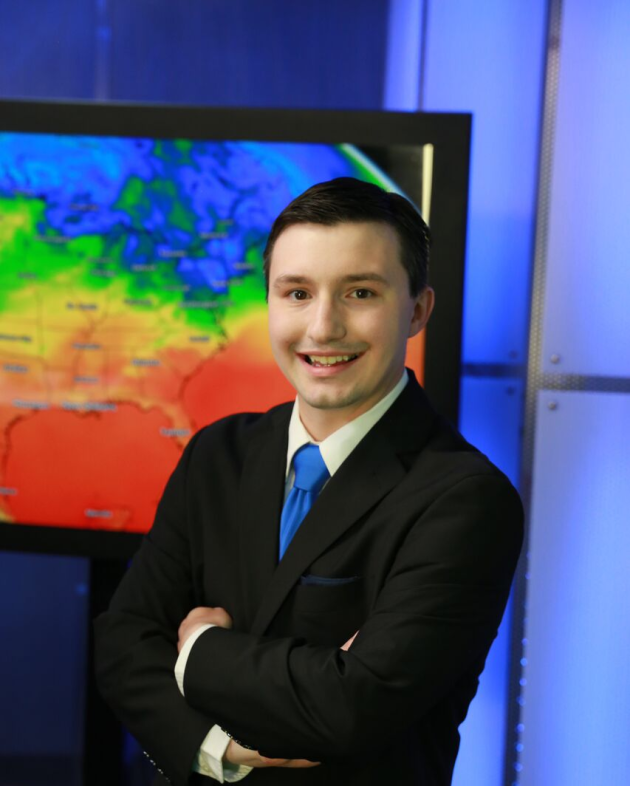National Weather Forecast
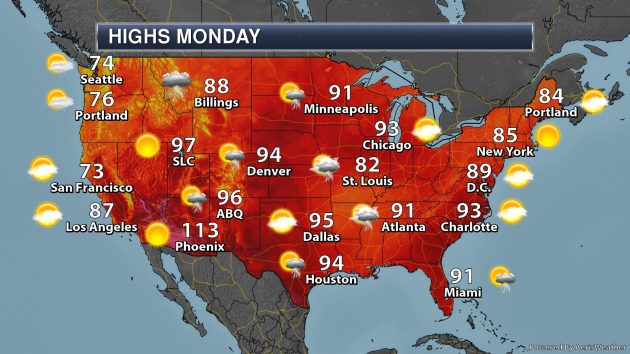
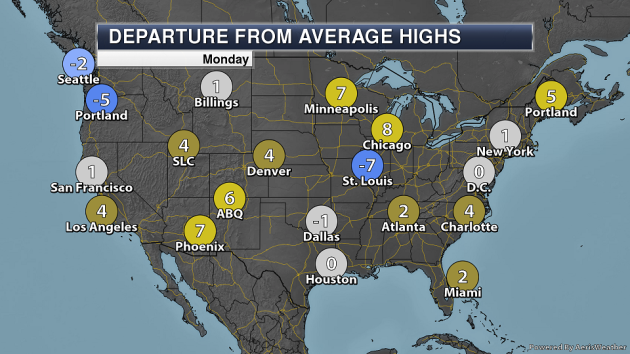
On Monday, Tropical Depression Barry will continue to bring heavy rain across parts of the lower and middle Mississippi Valleys. A frontal boundary in place from the Great Lakes to the Mid-Atlantic will help spark off some showers and storms. A cold front extending from northern Minnesota to the Northern Plains will also be the focus for some storms, some of which could be severe. A few afternoon storms will be possible across the central Rockies.
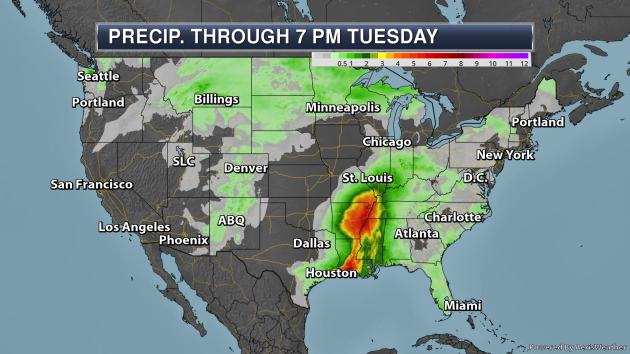
Through Tuesday evening, the heaviest rain across the lower 48 will be due to Barry in the lower and middle Mississippi Valleys. In these areas, additional rain totals of at least 3-7″ are possible. In the upper Midwest, rain totals could approach an inch in some locations.
_______________________________________________
Latest On Barry
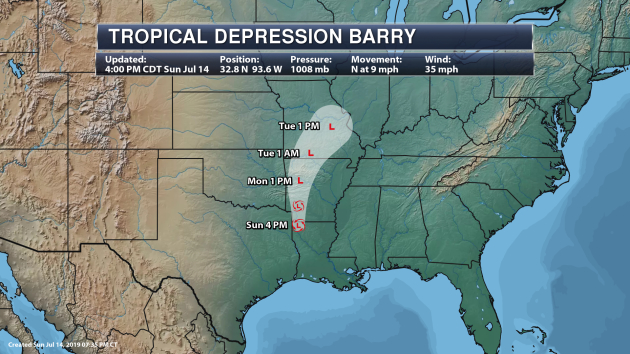
Barry was downgraded to a tropical depression late Sunday afternoon while over northwestern Louisiana. The storm will continue north and northeast over the next couple days and is expected to become a remnant low by Monday Night. It will still pose a heavy rain threat across portions of the Mississippi Valley through the beginning of the work week.
_______________________________________________
Bad weather drives down Iowa casino revenue
More from the Sioux City Journal: “Iowa’s state-licensed casinos weathered a tough financial year marred by flooding — especially in Sioux City and other western locations — that watered down overall revenue by about $6.8 million and washed away profits at more than half the facilities.”
Alaska Chokes on Wildfires as Heat Waves Dry Out the Arctic
More from InsideClimate News: “Under the choking black smoke from the bog and forest fires in Siberia and Alaska, it can feel like the Earth itself is burning. The normally moist, black organic peat soil and lush forests have been drying, and when they catch fire, they burn relentlessly. Global warming has been thawing tundra and drying vast stretches of the far-northern boreal forests, and it also has spurred more thunderstorms with lightning, which triggered many of the fires burning in Alaska this year, said Brian Brettschneider, a climate scientist with the International Arctic Research Center who closely tracks Alaskan and Arctic extreme weather. So far this year, wildfires have scorched more than 1.2 million acres in Alaska, making it one of the state’s three biggest fire years on record to this date, with high fire danger expected to persist in the weeks ahead.”
Metro Vancouver climate committee supports carbon neutrality in 2050
More from the Vancouver Sun: “Metro Vancouver’s Climate Action Committee, in response to the current climate crisis, threw its support behind a proposal Friday to make the region “carbon neutral” by 2050. Vancouver city councillor and chair of the committee Adriane Carr asked members Friday to endorse a report that would update Metro’s Climate 2050 Strategic Framework to support a 100 per cent net reduction in greenhouse gases instead of an 80 per cent reduction. Members supported the proposal, which still must be voted on later this month by the Metro Vancouver board.”
_______________________________________________
Thanks for checking in and have a great Monday! Don’t forget to follow me on Twitter (@dkayserwx) and like me on Facebook (Meteorologist D.J. Kayser)!
– D.J. Kayser
